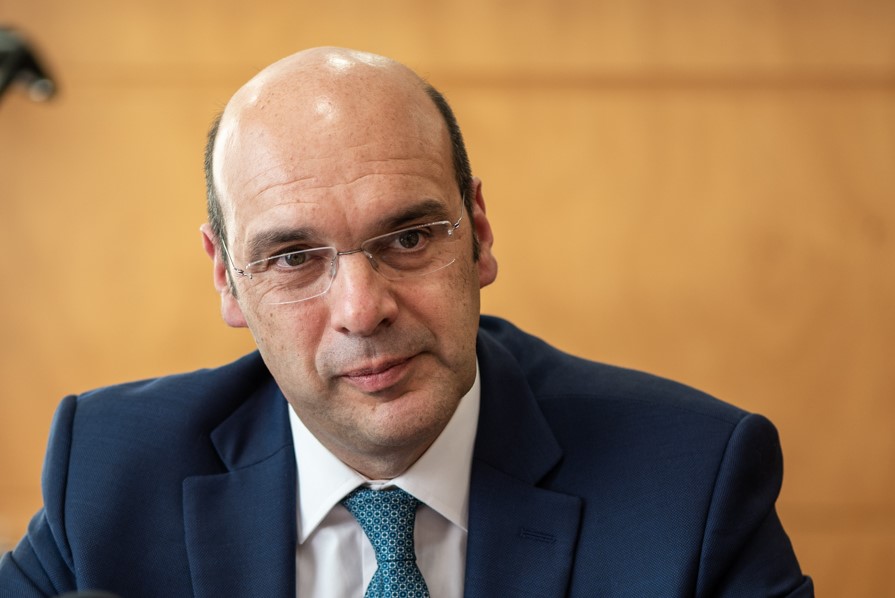The Minister of State, Economy and Digital Transition said today that direct support to the business fabric under the Recovery and Resilience Plan (PRR) will reach 3,4% of the Gross Domestic Product (GDP).
«From an aggregate point of view, direct support to the business fabric in the PRR will reach around 3,4% of the Gross Domestic Product. They correspond to 4.900 billion euros that we have already committed under the PRR, but also another 2.300 billion euros that the country has signaled to the European Union and which, depending on the demand of the private sector for funds, may be accessed through the loan mechanism », said Pedro Siza Vieira during the conference “New European Programs and the Transformation of the Portuguese Economy”, organized by CIP – Business Confederation of Portugal and CGD.
According to the minister, “it is about Portugal signaling to the European Union that the Portuguese state is ready to seek another 2.300 billion euros in loans to transfer them to the private sector, either with outright incentives for business investment or to support capitalization mechanisms'.
“It's not about asking for loans to lend money to companies, as Greece does, for example, but about the State asking for loans, to transfer them to companies, on a non-refundable basis, supporting these movements of investment in innovation. », he maintained.
In total, said Siza Vieira, "the PRR can reach around 11.000 billion euros of new demand directed at companies, between direct support that is transferred and everything that is indirect support".
In the case of direct support, the minister pointed out as examples the support for investment and business innovation, capitalization and financing for companies and the qualifications and skills of assets.
He also referred to the support for the decarbonization of the industry, the development of new materials around the bioeconomy, the energy efficiency of business buildings, the promotion of renewable gases and the digitalization of companies.
With regard to indirect support mechanisms, Pedro Siza Vieira said that “supports that mean the ability to better respond to company requests” are at stake, including adequate infrastructure for the transport of goods, qualifications and skills of human resources or an administration “more effective, efficient and transparent, particularly with regard to the justice system and the business environment”.
In this context, he highlighted “three programs that support this movement of transformation” of the Portuguese economy: the mobilizing agendas, the financing of companies and decarbonisation.
“On the mobilizing agendas, we have €930 million – which we can reinforce – in subsidies aimed at productive investment by companies. Basically, it is about supporting investments in a collaborative way, in the development of new products aimed at the market, incorporating innovation, associating large and small or medium-sized companies, together with entities from our scientific and technological sector, to allow orienting products to foreign markets. and services with greater added value”, he said.
As for the financing of companies, he pointed out the recent creation of Banco Português de Fomento, whose capital will be increased to «provide the country with a source of capital to reinforce the capitalization of companies».
According to him, «1.300 million euros will already be available to set up a capitalization fund, which will be managed by Banco Português de Fomento and which will be able to contribute to the resolution of undercapitalization of companies and to overcome market failures in access to capital in the future".
"The fund will be able to co-invest together with private investors, it will be able to invest in venture capital operators that intend to mobilize other private resources and select companies to invest in, and it will also be able to invest directly in larger companies", he said.
Additionally, the minister said, the capitalization fund "may underwrite certain operations in the capital market for companies that intend to go out to the market."
"All of this will change significantly, with a scale never seen before and unprecedented in all the countries that have already presented their PRR, to allow us to reinforce the capital of our companies", he stressed.
The third program highlighted by Siza Vieira was the decarbonization of Portuguese industry, namely the "heavy industry" and "electro-intensive consumers", who will have to make great investment efforts around the decarbonization of processes and energy efficiency" to meet the 55% emission reduction target by 2030.
Stressing that "non-refundable incentives" are at stake, Siza Vieira stated that, depending on the cases, the support can vary between 25% and 70% of the investment to be made, so they have to be "accompanied by a very large effort of private sector investment'.
“And the more availability of the private sector to carry out these investments, the more support it will be possible to mobilize”, he stressed.



















Comments